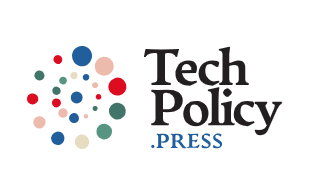
| Spui 25: The AI Gigafactory 10 March 2026 |
| IVIR Lecture Series: Does Information Law Suit Information Machines? 27 March 2026 |

IViR Summer Courses:

| Spui 25: The AI Gigafactory 10 March 2026 |
| IVIR Lecture Series: Does Information Law Suit Information Machines? 27 March 2026 |

IViR Summer Courses:

This month, Gabriela started as a PhD candidate at the Institute for Information Law (IViR). She holds bachelor’s degrees in Law and Philosophy from Erasmus University Rotterdam and a master’s degree in Information Law from the University of Amsterdam. After completing her studies, she worked as a junior researcher at IViR, contributing to projects on (decentralised) platform regulation, disinformation, freedom of expression, and the privacy and data protection implications of digital health initiatives for mobile populations.

POLITICO Europe reported about the keynote speech by Prabhat Agarwal (DG Connect, European Commission) at the DSA and Platform Regulation Conference on Monday 16 February in Amsterdam (University of Amsterdam).

This week the DSA Observatory hosted the second DSA and Platform Regulation Conference in Amsterdam with many of our IViR staff involved in the organisation or as speakers. Ahead of the conference, the DSA Observatory’s Paddy Leerssen, Magdalena Jóźwiak, and John Albert spoke with Ramsha Jahangir of Tech Policy Press to reflect on what has changed, and how the research landscape has evolved, in the two years since the DSA came fully into effect across the European Union.
Copyright
AI Act, Artificial intelligence, code of practice, Copyright
Case notes, Freedom of expression
Auteursrecht, deepfake, wet op de naburige rechten
Artificial intelligence, Copyright, music, remuneration, streaming services